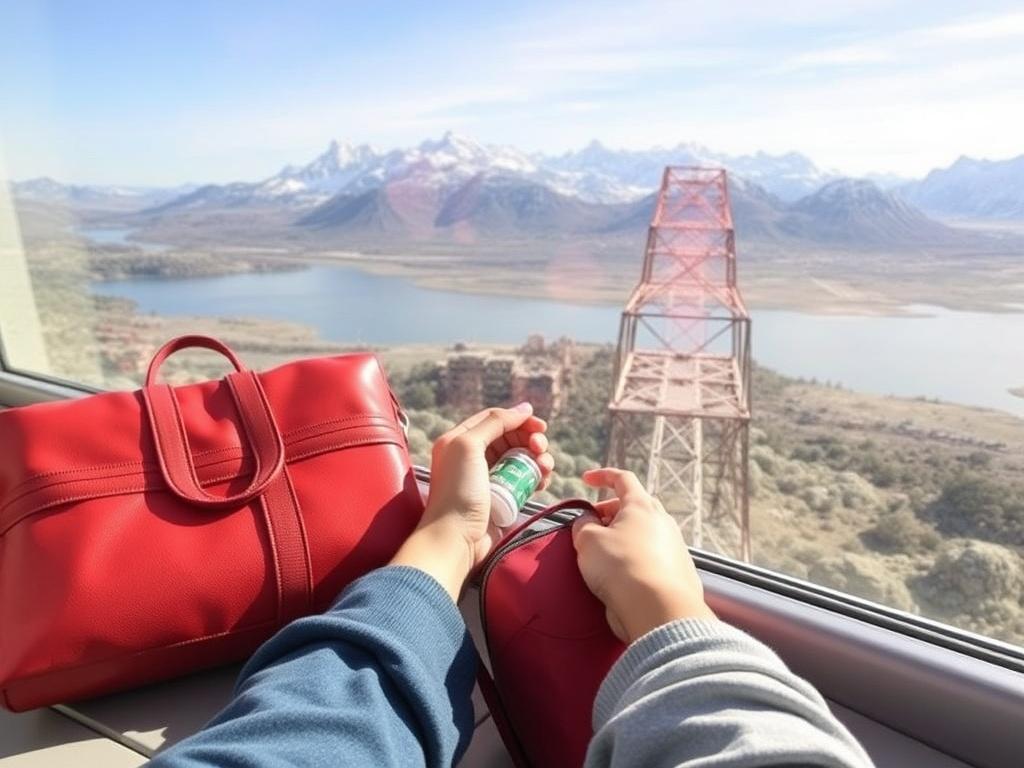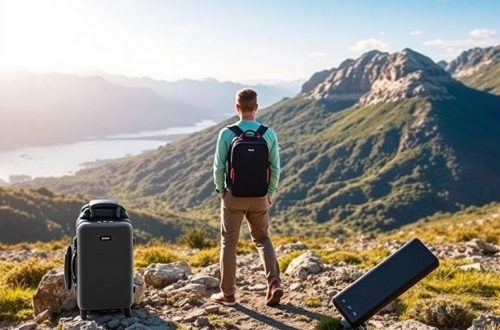
How to Travel with Medication: A Complete Guide to Staying Safe and Prepared
Traveling can be an exciting adventure, but for those who rely on medications, it can sometimes feel a bit overwhelming. How do you ensure that your medicine is safe, accessible, and handled correctly no matter where your journey takes you? Whether you’re planning a short trip or an extended vacation, traveling with medication requires some thoughtful preparation. This guide will take you step by step through everything you need to know about how to travel with medication smoothly and confidently, so you don’t have to worry about missing doses or dealing with complications on the road.
Understanding the Importance of Traveling with Medication
Many people underestimate the challenges that come with traveling with medication. It’s not just about packing your prescription bottles—there’s a lot more involved, including legal considerations, keeping your medicines at the right temperature, and communicating with healthcare providers abroad. The last thing anyone wants is to run out of essential medication while traveling or to have to deal with confusing airport security.
Having a solid plan for how to travel with medication will reduce stress. It ensures your health is protected, and you can enjoy your trip with peace of mind, knowing you’re prepared for anything. Whether it’s daily pills, insulin shots, or emergency medicines like inhalers or EpiPens, organizing how you carry your medications can make all the difference.
Planning Ahead: What to Do Before You Travel
Before you head out of town, there are several key steps to take that will set you up for success during your trip.
Consult with Your Healthcare Provider
One of the first things to do when planning how to travel with medication is to talk to your doctor or pharmacist. They can provide advice tailored to your health needs and travel itinerary. They might adjust your prescription if your trip spans many days and ensure you have enough medication to cover the entire duration. Sometimes, your healthcare provider can write an international medical letter explaining your condition and treatment—this is especially helpful at airports or in foreign countries where language barriers might exist.
Refill Your Prescriptions Early
Don’t wait until the last minute. Refill your prescriptions ahead of time. Some medications might require extra paper documentation, and certain places have limits on how much medicine you can travel with. Make sure you have enough to avoid running out unexpectedly.
Gather Important Documentation
When it comes to how to travel with medication, documentation is crucial. At a minimum, carry:
- Original prescription labels showing your name and the name of the medication
- A doctor’s note or prescription detailing your medical condition and medications
- Medication lists including dose, frequency, and any special instructions
- Emergency contact information for your healthcare providers
These documents can make airport security checks faster and prevent misunderstandings in customs. They can also be lifesavers in case you need medical attention abroad.
Packing Your Medications Safely
How you pack your medications can affect their effectiveness and your convenience. Here are some tips for keeping everything in order.
Use the Right Containers
Whenever possible, transport medications in their original pharmacy bottles. These have the necessary labeling and are less likely to raise questions at security checkpoints. For travel convenience, you can place these bottles in clear, sealable plastic bags, which helps keep everything visible and organized.
If you need to bring a pill organizer for easier daily use, keep the original bottles nearby or carry copies of prescriptions, so you have proof of your medication.
Keep Medications in Carry-On Bags
Always pack medication in your carry-on luggage instead of checked baggage. Checked bags can be lost, delayed, or exposed to extreme temperatures, which can spoil your medication. Having your medicine in your carry-on means you have instant access during the flight and layovers.
Control Temperature and Environment
Some medications, like insulin or liquid antibiotics, require refrigeration or stable temperatures. Consider using insulated bags or cool packs, but always check airline regulations about bringing ice packs or gels. For solid pills that don’t require special storage, a cool, dry place is sufficient.
Keep Emergency Medications Easily Accessible
If you use emergency medicines such as inhalers, allergy shots, or EpiPens, keep these items in an easy-to-reach pocket or bag. You never want to dig through bags when you need medication urgently.
Dealing with Airport Security and Customs
Airport security can sometimes be stressful for travelers carrying medication. However, being prepared helps smooth the process.
Know the Rules for Medication at Security Checkpoints
The Transportation Security Administration (TSA) and similar agencies worldwide allow passengers to bring medications in reasonable quantities through security checkpoints. Medications should be declared upfront and placed separately from other belongings in a bin for screening. Liquid medication containers larger than the usual 3.4 ounces (100 ml) limit are typically allowed but must be declared and may require additional screening.
Here’s a quick overview in a table format:
| Item | Allowed? | Additional Notes |
|---|---|---|
| Pills/Tablet Medications | Yes | Pack in original containers if possible |
| Liquids/Gels (over 3.4 oz/100 ml) | Yes | Must declare at checkpoint; separate for inspection |
| Medical Devices (e.g., nebulizers, insulin pens) | Yes | Declare and inform TSA agents |
| Ice Packs/Coolers | Often yes | Must be frozen solid at screening |
Be Honest and Proactive
In addition to having your documents ready, always inform security officers that you are carrying medication. Being upfront helps prevent confusion and delays.
Know Specific Country Rules
Each country may have different rules regarding medication import, especially for controlled substances or narcotics. Before traveling internationally, research the regulations for carrying your medication into your destination country to avoid legal problems. Some countries require permits or prior approval before bringing certain medications across their borders.
Managing Medication During Your Trip
Once you’ve arrived, staying on track with your medication schedule and keeping your medicines safe is essential.
Keep a Routine
Travel can throw off your normal routine and time zones, but attempt to keep your medication schedule consistent with your home time zone or adjust carefully to the new one. Use alarms or phone reminders to prevent missed doses.
Store Your Medications Properly
Make sure your medicines are stored as instructed. If refrigeration is required, ask your hotel or accommodation if they can provide a mini-fridge. Carrying small, portable coolers can also work for short-term needs.
Have a Backup Plan
Try to identify pharmacies or medical centers near your travel destination in case you need to refill or replace lost medication. Carry the pharmacist’s phone number or address on your phone or a printed copy.
Tips for Special Situations
Every traveler’s medication needs are unique. Here are considerations for a few common special cases.
Traveling with Insulin or Injectable Medications
If you administer insulin or other injectables, bring your syringes, needles, or pens in compliance with airline rules and carry a doctor’s note explaining your medical necessity. Also, ensure proper disposal containers are available, and pack backup supplies.
Traveling with Controlled Substances
Some medications are controlled due to potential for abuse (like certain painkillers or anxiety medications). These often have stricter regulations for travel. Verify local laws, bring extra documentation, and contact the embassy or consulate of your destination country ahead of time to avoid issues.
Traveling with Children or Elderly Relatives
Medication for minors or seniors often requires extra attention. Have clear instructions prepared for caregivers or travel companions. Also, create a master medication list that includes allergies and emergency contacts.
Common Mistakes to Avoid When Traveling with Medication
Here are some pitfalls travelers often fall into and how to avoid them:
- Packing medication in checked luggage instead of carry-on – risk of loss or damage
- Failing to declare medication at security checkpoints – causing delays or confiscation
- Running out of medication because of inadequate refills
- Ignoring medication storage requirements
- Not researching laws and regulations at the destination
Useful Items to Carry When Traveling with Medication
Creating a dedicated medication travel kit can make things much easier. Include:
- Original prescription containers
- Copies of prescriptions and doctor notes
- Pill organizer for daily doses
- Medical ID bracelet or card
- Small cooler or insulated bag if needed
- Disinfecting wipes or hand sanitizer
- Emergency contact list with doctors and pharmacies
Technology and Apps to Help You Manage Medication on the Go
In today’s digital world, numerous apps can remind you when to take your medication, track dosages, and even provide alerts for refills. Some popular apps include Medisafe, MyTherapy, and Pill Reminder. These tools are especially handy when traveling across different time zones.
Apps for Language Translation
If you’re traveling abroad, having a language translation app can help explain your medical condition or describe your medication to local healthcare workers. Google Translate or specialized medical translation apps can ease communication challenges.
Summary Table: Checklist for Traveling with Medication
| Step | Action |
|---|---|
| Before Travel | Consult doctor, refill prescriptions, get documentation |
| Packing | Use original bottles, pack in carry-on, use cool packs if needed |
| Airport | Declare meds, separate liquids, present documentation |
| During Trip | Follow schedule, store meds properly, keep emergency contacts |
| Backup | Know local pharmacies and emergency services |
Conclusion
Traveling with medication doesn’t have to be complicated or stressful. With a bit of planning, the right information, and careful packing, you can ensure your health needs are fully met while you explore new places. Remember to consult your healthcare provider, organize your medication and documentation, and stay informed about regulations at your destinations. By taking these simple yet important steps, you empower yourself to travel confidently and safely, knowing that your medications are handled properly throughout your journey. Whether you’re hopping on a quick flight or embarking on an international adventure, the key to successful travel with medication lies in preparation and awareness—so you can focus on enjoying every moment of your trip.




